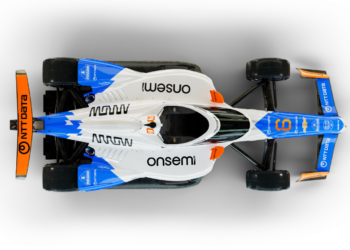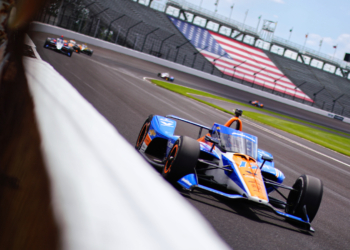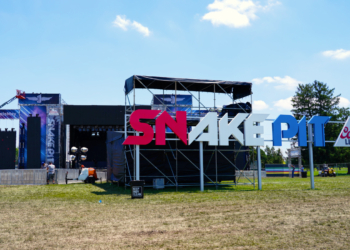Mike Hull has been around IndyCar longer than most people in the paddock, and he has seen many changes come and go from the series.
Being with Chip Ganassi Racing for over 30 years, the managing director oversees many aspects of the team and has been a key part in the team’s many success stories over that time.
In the build up to this year’s Indy 500, Hull was asked to give his view on how some things in the sport have changed, and also give his outlook on where it’s heading next.
He started by talking about how teams had access to nearly unlimited funding from their manufacturers, leading to a ton of track time and some incredibly long hours behind the scenes.
“Today, what’s in common with what we had is we still have strong manufacturers in the series,” said Hull. “That’s number one. That’s what we had in the days you’re talking about. We had strong manufacturers in the series.
“Things have changed now. Let’s face it. Financially they’ve changed, and so what the sanctioning body, the IndyCar sanctioning body has done is they’ve done a good job of saving us from ourselves. They have.
“What you don’t see as journalists, what the people in the grandstands don’t see, is how hard we work underneath the body panels to make the cars better than the rest, within the rules.
“Yeah, when I started here as a young guy we came here with two cars per driver, enough manpower to be able to roll the cars back and forth to the practice area on a daily basis with different setups on them.
“You had at least three, maybe four engines manufacturers, two tire companies, three chassis companies, and the lights never went off in the garage area. We never went home.
“We’d go home at 3:00 in the morning, come back at 6:30 in the morning, go back to work. I don’t know today with human resources if we’d get away with that, quite frankly.
“It was fantastic. It was fantastic, but the reason was because we had terrific manufacturer and vendor support in those days, which included the financial side of it. I would love it if we could go back to that, but it’s probably not going to happen.”

Chip Ganassi Racing continues to be a powerhouse of a team, even today. Adapting to the rule changes as they come has been one of the key strengths of the organization as a whole.
By not just paying attention to the small weekend details, but also predicting the overall direction of the series, the team is able to stay near the front of the field year in and year out.
When asked his view on where the series is headed next, Hull gave an interesting perspective on how the teams will be structured.
“If you look at this series, if you forecast this series down the road, I’ll make a prediction,” offered Hull. “Five years from today there’s going to be 10 teams with three cars each. There’s going to be 30 cars in the series that are well supported. That’s where it’s going.
“By then we should have new cars. By then we should have three, maybe four engine manufacturers if Mr. Penske’s group do what they’re working to do. Hopefully we have a tire company still that will stay up with that.
“If you look at these drivers, they represent generationally what’s coming next. We can already see what’s coming next. This series is going to become more carnivorous than it is today, in a different fashion. But we’re still doing one thing in common with those days.
“We do one simple thing here: We just race cars. That’s all we do. That’s what we do. That’s why it’s so much fun at Indianapolis.”








